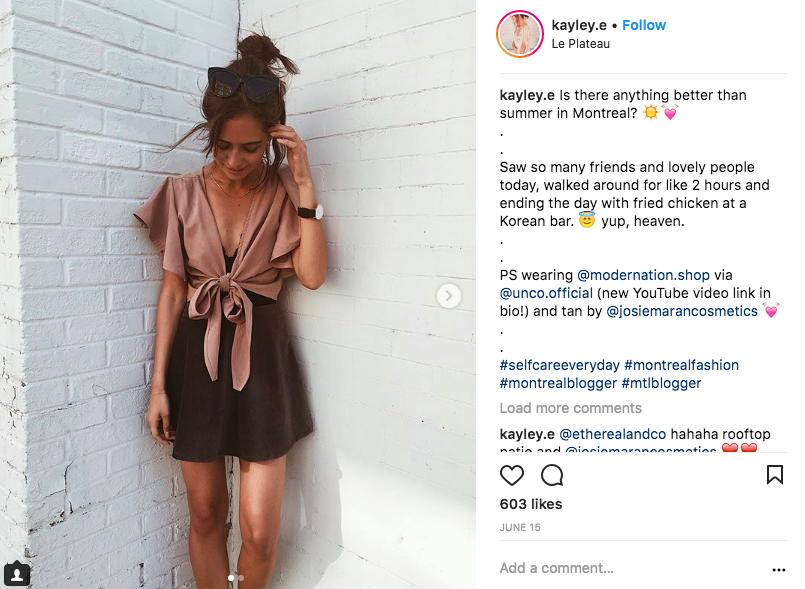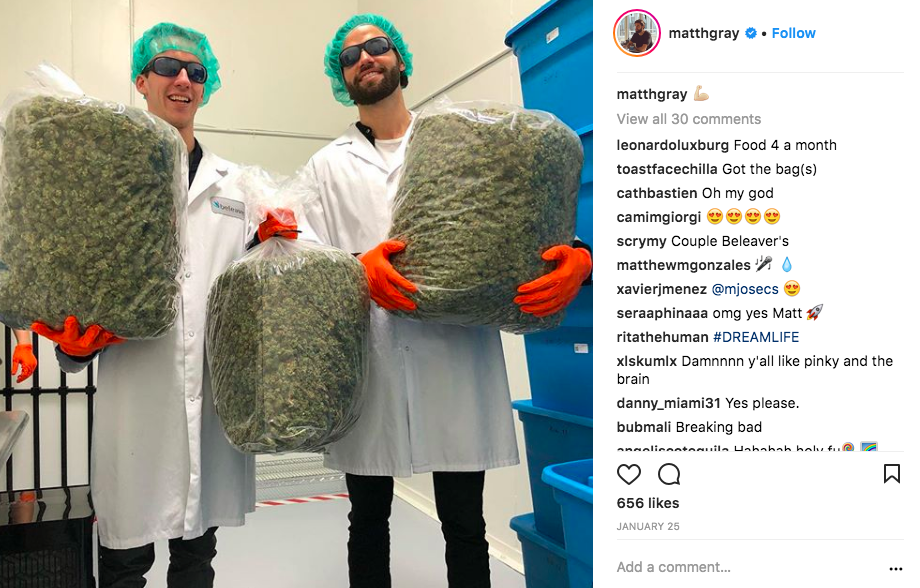More and more, marketers are turning to micro influencers to increase brand awareness and engagement through social media. Engagement results are said to be much higher due to the simple fact that people relate to micro influencers.
As consumers have steadily lost trust in advertising, there has been a shift to preferring genuine recommendations from friends and family. Micro influencers are characterized as relatable, genuine and trustworthy. Let’s dig a bit deeper as to why people relate to micro influencers.
They’re authentic
These micro influencers, typically social media influencers with 1,000-100,000 followers, have been strategic with their online presence and view social media platforms like Instagram and YouTube, as outlets for showcasing their personal brands. It’s the authenticity of their posts, and the clear storyline or themes of the content that they share, that their audiences find so charming.
With micro influencers, authenticity is arguably the number one reason that sets them apart from other forms of digital marketing. People can see through unauthentic posts and reviews from celebrities, but they believe in the genuine nature of micro influencers. In an Influencer Marketing survey that asked 170 marketers from CPGs, food-and-beverage companies and retailers, 87% of respondents said that “Influencer marketing’s top benefits entail creating authentic content about their brand”.
They’re putting themselves out there
While most people use social media platforms as a form of entertainment or to connect with their friends, micro-influencers view these outlets as channels to share their voice. They’re positioning themselves as authorities within industries that interest them, or as advocates for social causes they’re passionate about. Their followers relate to the content they share and the point of view they have on the world. Since most people are unwilling to be vulnerable with their personal brands and publicly comment on industry trends, micro-influencers have gained respect from their loyal followings. It’s their willingness to risk judgement or backlash of putting themselves out there, that resonates with people who are uncomfortable to do so.
For example, Kayley Reed is a micro-influencer within the health and wellness space. She built up a following by blogging about her personal struggles with mental health and now has a following of more than 6,000 self-care advocates. Kayley uses her personal experiences to relate with others who’ve had similar circumstances and she’s chosen to use her voice to create a positive, social impact.

Use Qoints AI Social Discovery to Find Micro Influencers Like Kayley Reed
they’re predictable
People also relate to micro influencers because they use predictability of their posts. By consistently producing original, quality content that is focused within niche topics, micro-influencers are able to build a following that extends their personal networks. They into a global audience of social media users who are utilizing these platforms daily, looking to consume content relevant to their interests. The reach of their posts are not limited to their friends or friends of friends. They’re finding users who are attracted to the content they’re sharing, who then subscribe to follow future posts that follow that theme or point of view.
For example, Matt Gray has positioned himself as a thought leader within the cannabis industry. In additional to the media company he founded, HERB, Matt speaks regularly about the future of cannabis and has a pulse on its legislation. Matt has attracted an audience of over 7,000 cannabis enthusiasts who see him as an authority within the industry.

Micro-influencers are skilled at drawing audiences who think similarly or have a shared set of values. That ability to connect over something that’s personal and linked to someone’s individual passions, gives the micro-influencer an ability to build genuine relationships and authority. There is a disconnect between celebrity lifestyle, and many products or services that the average person would use, and micro influencers are able to fill that gap. They promote brands in real life situations where people can picture themselves in the same position. Given that influencers often promote the brands they love, which fit in well with their specific style, they are a trusted source of recommendations.
Some micro-influencers have built their audience strategically, with the intention to monetize through influencer marketing. Others simply had a passion or perspective, and a willingness to leverage digital tools to share that voice. Regardless, micro-influencers are truly skilled at building trust and an audience willing to engage with their content.
Relatability is a crucial component of influencer promotions, and marketers are partnering with micro influencers because they display the advantage that general forms of digital marketing can’t provide.
Now that you have a deeper understanding of what a micro influencer is and why people relate to micro influencers – find the micro influencers that will help you grow your brand!

